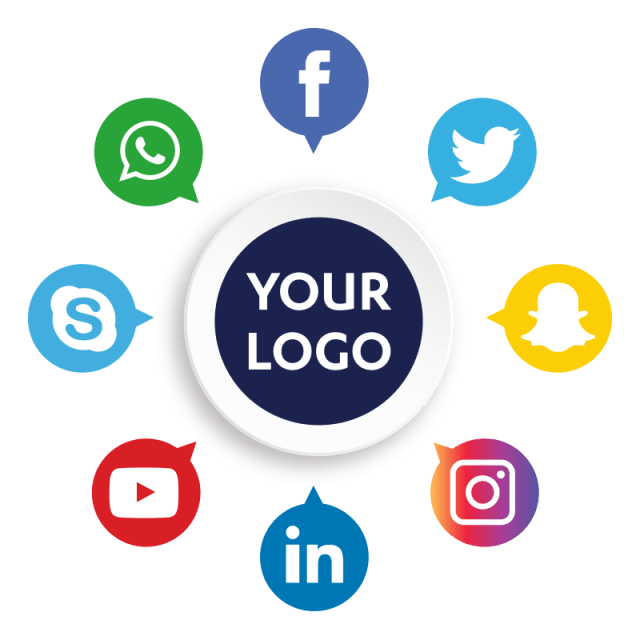Create success Digital Pharma marketing
The pharmaceutical industry has been one of the slowest industries to adapt to the rise of digital. This has left industry incumbents open to disruption as more agile startups, and digital-savvy competitors from outside the industry capitalize on the slow rate of change.
In today’s digital age, consumers and healthcare providers use online
channels to research ailments, find treatments, and buy pharmaceutical products. As a result, pharma companies need to adapt and evolve from legacy B2B sales channels to a more competitive D2C model.
Digital marketing provides the strategies and tools to engage customers in a more targeted and measurable way. Pharma marketers can deliver omnichannel campaigns with personalized messaging tailored to the needs of each audience segment.
Marketing automation and technologies like VR and AR are already making an impact in pharmaceutical marketing, and the role of digital is set to grow over the coming years.
Consumers and healthcare providers have embraced digital into their lives.
Pharmaceutical companies have been chasing to catch up and keep pace with change.
In this new dynamic, digital marketing has become essential to modernize the customer experience and leverage digital channels for growth.
There have been some success stories, but the industry has largely been slow to adapt.
In this guide, we’ll explore the importance of digital marketing in pharma and the trends shaping the industry in the wake of the COVID-19 pandemic.
We’ll also reveal the five ways that pharma marketers can use digital marketing to grow audiences and generate more revenue.
What Is Digital Marketing in the Pharma Sector?
Pharmaceutical digital marketing is the use of strategies and technologies to promote products to the right audiences across digital channels. It’s an opportunity for pharma brands to leverage cost effective digital marketing strategies to connect with consumers and healthcare providers.
Digital customer experience in pharmaceutical companies is underdeveloped compared to other sectors. Digital marketing is vital in the race to catch up and deliver the experience modern consumers demand.
Why Is Digital Marketing Important for the Pharma Industry?
The pharma industry has been one of the slowest industries to adapt to the rise of digital. This has left industry incumbents open to disruption as more agile startups, and digital-savvy competitors from outside the industry capitalize on the slow rate of change.
In today’s digital age, consumers and healthcare providers use online channels to research ailments, find treatments, and buy pharmaceutical products. As a result, pharma companies need to adapt and evolve from legacy B2B sales channels to a more competitive D2C model.
Digital marketing provides the strategies and tools to engage customers in a more targeted and measurable way. Pharma marketers can deliver omnichannel campaigns with personalized messaging tailored to the needs of each audience segment.
Marketing automation and technologies like VR and AR are already making an impact in pharmaceutical marketing, and the role of digital is set to grow over the coming years.
A 2019 survey of bioscience and pharmaceutical executives revealed that one-third of companies will be spending over 50% of their marketing budget on digital channels by the end of 2022.
What Are the Pillars of Digital Marketing Strategy That Every Pharma Company Needs To Have?
There are several key areas where digital marketing pharmaceuticals teams should accelerate their digital initiatives.
E-Commerce
The e-commerce pharma industry will be worth $177,794.9 million by 2026, achieving a compound annual growth rate of 17.3%.
With consumers researching symptoms and products online, the e-commerce model provides a smooth buying experience. The convenience and privacy of purchasing online are compelling reasons why e-commerce is a key trend in pharma marketing.
Content Marketing Strategy
Pharmaceutical companies need to develop content marketing strategies for both consumers and healthcare providers. In an industry where buyer research is integral to sales, content marketing provides an opportunity to educate and build relationships with consumers and healthcare providers.
SEO
Being present in search results is vital. According to research by Google, one in 20 searches conducted on the search engine is related to health. Consumers and healthcare providers use search engines to research products, symptoms, and potential solutions.
According to a study published in the American Hospital Association, doctors spend 2x as much time using online resources than print journals and offline resources.
Social Media & PR
Social media does have limitations on promoting some pharmaceutical products, but there are still advertising possibilities. One of the most significant opportunities for pharmaceutical companies is social listening. You can find out what consumers say about your products, brand, and views on competing medications.
Paid Media
Paid media is an effective tool to gain attention quickly. When combined with an innovative and engaging content marketing strategy, paid media be a great way to grow an audience and expand your reach. It’s an effective tool for ensuring you are present with the right message at the right moment.
Marketing Automation & CRM
With digital marketing covering many channels and tactics, it’s vital that you can track and manage relationships with consumers and healthcare providers. Marketing automation enables you to scale, streamline, and automate to increase efficiency. A CRM allows you to manage your marketing initiatives and provide the omnichannel experiences that modern buyers demand.
How to Succeed in Pharma Marketing
Here are the top five ways pharma companies can succeed with digital marketing in 2021:
1. Create and Target the Right Buyer Personas
Personalization is one of the biggest trends in healthcare and pharmaceuticals.
This includes the personalization of therapies and preventative care to the development of new treatments and drugs tailored to the needs of specific patients. However, pharma personalization also includes marketing.
To provide highly relevant, valuable content and messaging, pharma companies need to segment audiences and move away from broadcasting a one-size-fits-all message. Consumers want to be treated as individuals. This is more important for healthcare than any other industry.
Using a customer data platform, pharma companies can segment audiences into detailed buyer personas. This allows for hyper-relevant messaging and personalized content.
2. Create Engaging and Innovative Content
The internet has democratized access to information. Pharmaceutical companies are no longer gatekeepers to information about products.
Consumers and healthcare professionals can use online resources, forums, communities, and search engines to find insights into symptoms, treatments, and products.
Pharma companies can capitalize on this demand for information by producing engaging and innovative content targeted to buyer personas.
This can include awareness stage content on symptoms for consumers. But it can also include more detailed, in-depth content for healthcare providers. Content marketing is key to addressing consumer pain points and establishing your brand as a thought leader.
German pharmaceutical company Bayer is an example of how content marketing can be successfully utilized. The company has built a large audience by publishing the Bayer Magazine which contains content for B2B and B2C audiences.
3. Collect and Analyze Data Correctly (Results Attribution)
The scale of the data produced by digital channels and the nature of pharma marketing make tracking campaigns complex.
With consumers researching symptoms and products on multiple channels and devices before making a purchase, it’s vital that pharma companies track and attribute conversions.
One of the benefits of digital marketing is that it is possible to track and measure performance, but there are challenges that pharma companies need to overcome.
For example, the death of the third-party cookie and the legal requirements of pharma marketing often create obstacles.
The best way to overcome this challenge is often to partner with a digital agency that can assist in building a digital ecosystem that allows for proper media attribution.
4. Use the Right Technology
There are exciting opportunities for pharma companies that are willing to embrace new technologies.
VR and AR technology has steadily been integrated into many industries, including pharmaceuticals.
Pharma companies can use VR and AR to create immersive educational experiences for consumers and healthcare providers. For example, mechanism action animations are used in almost all pharmaceutical marketing presentations. Using VR, pharma companies can make these animations more immersive and memorable.
Artificial intelligence is another technology that is having a significant impact on pharma marketing. Johnson & Johnson is an example of a pharma brand that leverages Al-powered chatbots to respond to consumers and healthcare providers 24/7.
5. Testing and Automation
Pharma companies have a vast number of options available when it comes to digital marketing. Unfortunately, this can often lead to slower adoption of digital strategies as there is indecision on which strategy to proceed with.
The lack of digital capabilities often compounds this problem.
The best way to overcome this challenge is by adopting an agile methodology.
Testing provides valuable insights into a strategy before it is rolled out in full. Then, if the strategy doesn’t generate the expected results, it can be optimized and adapted according to the market response.
For example, you can test a paid media campaign in a pilot scheme. Then, if the campaign generates significant meetings with healthcare providers or consumer interest, it can be fully rolled out.
Experimentation is key to learning fast and developing winning strategies.
When a hypothesis has been proved correct and achieved a measurable impact, marketing automation provides the capabilities to scale the campaign quickly across multiple channels.
Conclusion
The rise of the digital-sway consumer has created new challenges and opportunities for pharma companies. To succeed in the digital age, pharma companies need to connect with the end-users of their products across digital channels. There is a shift from B2B to a B2B2C model. If you’d like to learn more about pharma digital marketing and how a digital strategy can drive your company forward, schedule a consultation with the marketing experts here Abdallah Battah


